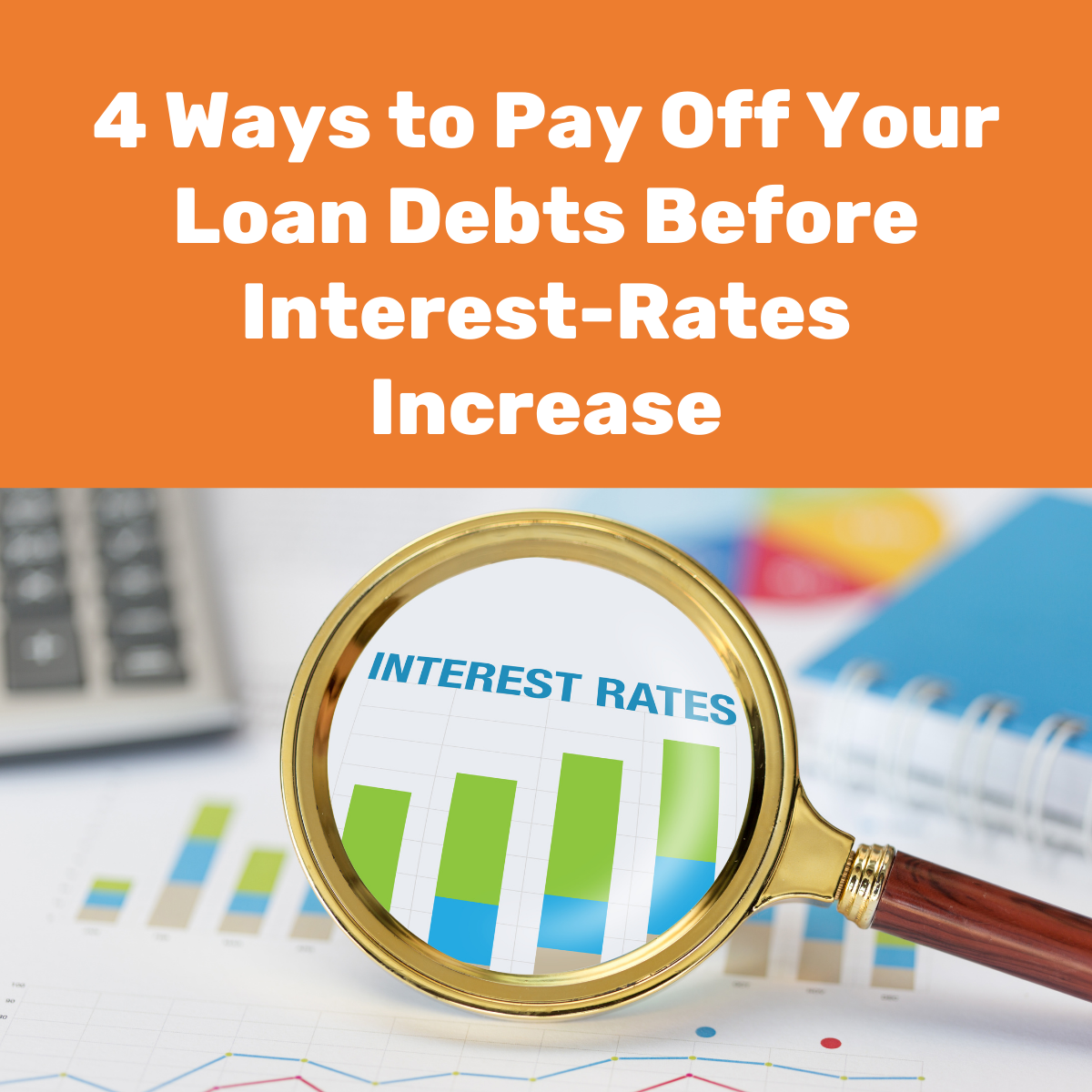About the Author
Stephany Lamas
Stephany joined the RentReporters Marketing Team in 2021.

July 6, 2022
7 mins read

The federal reserve continues to raise interest rates, affecting adjustable-rate debt, such as credit cards and auto loans. The Fed warned that there would be more increases this year.
Consider paying off those high-interest debts now before it becomes harder and more expensive to do so.
Financial advisers suggest paying down your high-interest debt as soon as possible as it can cost you more in the long term. Don’t fret, though! We got 4 ways to help you pay off those debts:
Cutting back on unnecessary expenses to be able to pay off your debt helps you pay it off faster. Knowing that interest rates are increasing means, there’s a sense of urgency and the need to put more towards those debts rather than things you may not need.
Below are some areas where you can start:
Once you cut back on your spending and are done paying off your debt, you’ll feel less stressed knowing you made the right decision to cut back on your spending.
Focus on why you want to be debt-free. For example, you may be motivated by a desire to buy a house, to retire early by investing more in your 401(k) after your loans have been repaid, to travel the world, or buy a brand new car. Whatever your goal is, remember that it’s worth the sacrifice. You can even put a picture in your wallet or computer to remind you.
Calculating how much money you will save over the lifetime of the highest interest debt you want to pay off will help you feel motivated and see it as a return rather than a burden. Use this calculator to help you!
Tracking your progress and watching your debt balances decline will help you feel excited about the difference your payments made. You can do this with an app, by creating a spreadsheet on your computer or simply writing in a notebook. Find a way to see the results of your efforts to continue to feel motivated.
Celebrate small wins, especially when you hit specific milestones, such as every $1,000 you pay off. Of course, you don’t want to spend a lot of money as a reward as this could derail your payoff efforts, but you could plan a small special treat each time you hit a specific milestone.
List each debt you have and its corresponding interest rate on a spreadsheet or an app, as this will help you feel more in control of your debts and finances.
Once you do this, pay close attention to the credit card debt, adjustable-rate mortgages, home-equity lines of credit, auto loans, and student loans, as the interest rates on these loans may rise faster than those on other types of loans.
One of the most popular approaches to paying off debt fast is accelerated payments, and there are two distinct strategies: the Debt Avalanche method and the Debt Snowball method.
The Debt Avalanche is paying off your debts in order of the highest interest rate. This method saves you money in the long run because you’re paying less interest.
The Debt Snowball involves paying off your smallest debt first, then moving on to your next smallest balance. This method can add money back to your monthly budget since you have fewer minimum payments.
There’s no right or wrong in each of the methods listed below. It is ultimately up to you to decide which method best suits your needs, as it all comes down to personal preference.
Consider refinancing your debt if you have loans with variable interest rates. Refinancing will help you lock in a fixed rate and give you monthly payments that won’t rise even if interest rates continue to go up.
Of course, this decision depends on your financial situation and your goals. For example, your end goal may be that you want to save money over the life of the loan or pay a lower monthly payment with a better interest rate to save or free up extra cash.
Consolidating with a personal loan may be more helpful if you have a large credit card debt or are juggling several credit card payments. Consolidating tends to come with lower interest rates, especially if you have good credit.
Another way is to sign up for a 0% balance transfer credit card, as you may be able to avoid interest for up to 21 months. This alone could save hundreds in interest payments depending on how much you owe. Most offers charge a transfer fee of 3% to 5%. It can be worth the cost as long as you are disciplined about paying the money back during the 0% offer period.
Stephany joined the RentReporters Marketing Team in 2021.
